Our Partners
Under our guidance, our partners take a step-forward and begin introducing projects that focus not only on people who require care, but also those who care for them.
By partnering with local, in-country charities, we ensure that our Carers Worldwide Model is implemented in a way that is culturally sensitive and effective. Our goal is for our local partners to become self-sufficient, continuing the work independently, which allows us to extend our support to new regions and communities.
After funding their work for a number of years, we transition our long-standing partners to become our Resource Partners. They share their expertise and experience of working with unpaid carers with new Carers Worldwide partners and with service providers and government departments in their geographic areas.
We currently work with 10 Implementation Partners and eight Resource Partners across India, Nepal and Bangladesh.
Implementation Partners

Margardarshi

Margardarshi – India
Margardarshi, based in Karnataka, India, was established in 1988 by people who have personally experienced the challenges of disability.
Margardarshi’s main purpose is to support the most vulnerable groups of persons with disabilities and promote their physical, social, psychological and economic well-being. They seek to remove the barriers imposed by disability and to instil self-belief in disabled persons so that they can become responsible for their own development.
Margardarshi, began working with us in 2019 and is our partner in the ‘Care for Carers’ project.
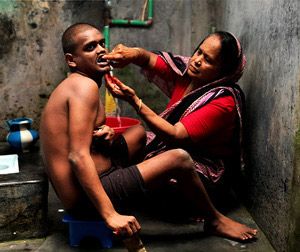
CDD

CDD – Bangladesh
Centre for Disability in Development (CDD) Bangladesh aims to bring disability issues in to mainstream development and to ensure persons with disabilities obtain equal opportunities and can fully participate in all spheres of life.
CDD is a not-for-profit organisation established in 1996. It is estimated that 16 million people in Bangladesh are living with a disability, receiving little or no assistance and are excluded from mainstream life. As well as bringing persons with disabilities in to public life, CDD educates communities on how to be more inclusive to persons with disabilities. CDD works in partnership with a network of over 350 organisations both nationally and internationally.
CDD was our first partner in Bangladesh. We started working with CDD in 2019 and are currently working on the following projects: “Achieving socioeconomic inclusion of vulnerable family carers in Bangladesh”, “Testing an approach to social and economic inclusion of impoverished family carers in Bangladesh” and “Enabling people with physical disabilities in Bangladesh to reach their potential through the provision of aids and appliances”.

BIRDS

BIRDS – India
Since 1989, Bijapur Integrated Rural Development Society (BIRDS) has been working in selected rural areas across nine Districts in the state of Karnataka, south India. BIRDS works with a variety of vulnerable groups, including the disabled, the landless, those from scheduled castes and scheduled tribes, marginal farmers and women with socio-economic issues.
BIRDS works towards the development of the rural poor through diversified development activities. They work in partnership with other development organisations in the areas of education, health, agriculture and environment, and their vision is that ‘all people live with dignity’.
BIRDS began working with us in 2021. Our joint project will work towards creating a Carers Movement for the protection and endorsement of carers’ rights as per the Rights of Persons with Disabilities Act, 2016 and the Mental Healthcare Act, 2017. Our joint objective is to ensure the recognition of the critical role played by family carers caring for their loved ones and to bring about systemic change to support them.
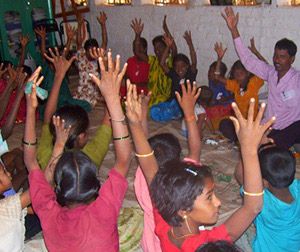
Narendra Foundation

Narendra Foundation – India
Narendra Foundation have been operating since 1997 in some of the most deprived parts of the state of Karnataka in southern India.
Narendra Foundation’s vision is ‘a society where people living with disabilities enjoy dignity, rights and opportunities, irrespective of caste, class, religion, age and gender’. They initially started working with people with disabilities and later went on to include people with mental illness.
Over the years they have expanded in their reach and have recently extended their advocacy work to the state level, including succesfully influencing the Government of Karnataka to implement a system of rehabilitation workers at village level.
We partnered with Narendra Foundation in 2021 to implement the ‘Caring for Carers’ programme in Pavagada Taluk. Through this programme, Carers Groups will be formed and a Carers Association will be promoted. We will also establish a Community Caring Centre in Pavagada Town to provide education for children with disabilities and offer respite to their carers. The project will also engage with government officials and establish links with the Disability Department and the Women and Child Welfare Department.
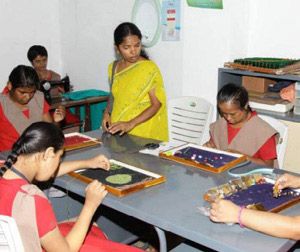
Shristi Special Academy

Shristi Special Academy – India
Shristi Special Academy (SSA) in Bangalore, southern India, works with people with special needs from infancy to adulthood. SSA is dedicated to enabling self-reliance and improving the quality of life of people with Intellectual Disabilities, Autism, Cerebral Palsy and Multiple Disabilities, irrespective of sex, religion, caste, age, or severity.
SSA was founded in 1995 by a group of special educators. Their vision is to improve the overall quality of life of people living with disabilities, to ensure their full participation and acceptance in society. SSA empowers them to access intervention and rehabilitation services to promote maximum independence and confidence. They also help their families and communities to spread awareness of disabilities to aid acceptance in the wider community. SSA operate Early Childhood Programmes, Life Skills Training, Parent Empowerment, and Livelihood Training.
We began our partnership with SSA in 2021. As a part of our joint project, Community Caring and Education Centres will be established in urban districts of Bangalore. These centres will offer educational services for children with disabilities, whilst enabling their primary carers to access livelihood and training opportunities and their sibling carers to enrol back in full time education. The establishment of these centres will mean that children with disabilities will be visible in their own communities and neighbourhoods, thereby promoting inclusion and challenging stigma within communities.

UETS

UETS – India
Uma Educational and Technical Society (UETS) was founded in 1988 and works to support people with disabilities in the city of Kakinada in the state of Andhra Pradesh. Starting with nine disabled children in a residential school under the name “Uma Manovikasam Kendram” their reach and coverage has expanded over the years. Their vision is that ‘Persons with different abilities should have equal rights, respect, and dignity to lead a better quality of life.’
UETS runs 15 projects that include special schools for children with intellectual disabilities, early intervention and rehabilitation centres, group homes for disabled adults, workshops for production of mobility aids and special education training institutes.
UETS entered into partnership with us in 2021 to implement the project ‘Comprehensive Rehabilitation and Inclusive Development of Persons with Mental Illness and their Carers’ in East Godavari District, Andhra Pradesh.
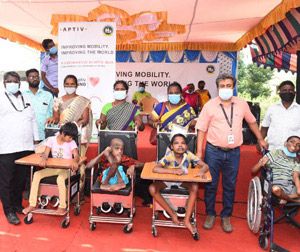
Vasantham Federation

Vasantham Federation
Vasantham Federation is a registered non-governmental, non-profitable and non-political development organization, which has been operating since 2010 in the district of Thiruvallur, Tamil Nadu, India. Their vision is a world in which the rights and dignity of people living with disabilities are realised and where they are able to participate fully and effectively in society, leading to a good quality of life. Vasantham Federation works in the areas of health, education, livelihood and the empowerment of people with disabilities.
Our partnership with Vasantham Federation was established in March 2022. This joint initiative is working towards promoting the mental health and well-being of unpaid carers and people with mental illness in the Thiruvallur district of Tamil Nadu. The primary objective of the project is to improve the mental health of 500 people with mental illness and to improve the holistic well being of their 500 carers. This three-year project is funded by the Live Love Laugh Foundation in Bangalore, India.

TPO Nepal

TPO Nepal
Transcultural Psychosocial Organization Nepal (TPO Nepal) is one of Nepal’s leading psychosocial organisations. It was established in 2005 with the aim of promoting the psychosocial well-being and mental health of children and families affected by conflict, and other vulnerable communities. TPO Nepal is a knowledge-driven, innovative organisation working in areas disrupted by violence and poverty. We strive to develop local psychosocial, mental health and conflict resolution capacity and systems that promote community resilience, quality of life and self-reliance through education,research, service delivery and advocacy.
We started working with TPO Nepal in 2024 and our first project together ‘Barefoot Counselling Service to improve mental well-being of unpaid family carers in Nepal’ will train and support 25 Female Community Health Volunteers to provide a counselling service that will benefit an estimated 500 family carers in Nepal each year.
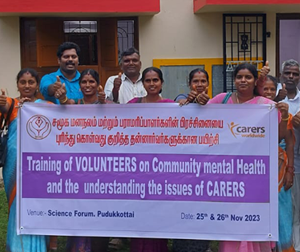
WORD, Tamil Nadu

WORD – Tamil Nadu, India
Founded in 1992, Women’s Organisation and Rural Development (WORD) is a voluntary social welfare organisation working in the areas of educational and health developmental for the empowerment of poor communities, in Pudukottai district in the state of Tamil Nadu, India. Their work focusses on supporting women (especially single women), children, and people with a physical or intellectual disability. WORD is also involved in promoting programmes for the welfare of the general community, such as sustainable agriculture, animal husbandry, micro-enterprises and environmental protection.
WORD is dedicated to making a positive impact on the community. They aim to foster inclusivity, support those in need, and contribute to the well-being and empowerment of diverse communities.
We began working with WORD in 2023, our first project together being “To Empower Carers Through Awareness and Alternative Livelihood Programmes.” This project works with unpaid carers who care for someone with a mental illness. The goal of this project is to enhance the lives of unpaid carers, to support them in livelihood activities, and to promote their integration within the community.
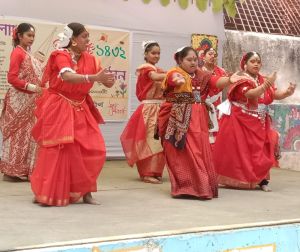
SWID Bangladesh
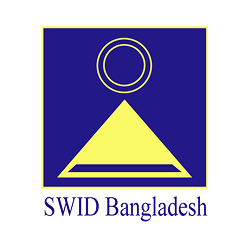
SWID Bangladesh
The Society for the Welfare of the Intellectually Disabled (SWID) began its journey in 1977 and has since grown into a nationally recognised organisation in Bangladesh. Over the decades, SWID has played a pioneering role in supporting persons with intellectual disabilities and their families, contributing significantly to the development of services and awareness in the country.
SWID’s vision is to establish equal educational and social rights and to promote the full inclusion of persons with intellectual disabilities, Autism, Down syndrome and cerebral palsy in the mainstream of society. At the heart of its work is a strong commitment to dignity, participation and equal opportunity for all.
To achieve this, SWID focuses on raising social awareness and advocating for equal rights, while also creating access to special and inclusive education, vocational training, rehabilitation, counselling and other therapeutic services. The organisation promotes sports and cultural activities, undertakes research and shares learning, and invests in developing a skilled and dedicated workforce to ensure individuals with intellectual disabilities and Autism receive quality, respectful and effective support.
SWID partnered with us in 2025, to extend their support to the unpaid carers of those they are currently working with.
Resource Partners
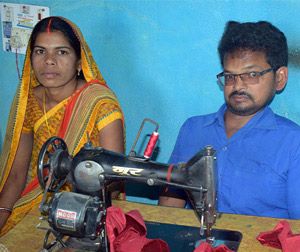
NBJK

NBJK – India
Nav Bharat Jagriti Kendra (NBJK), based in Jharkhand in the north of India, was founded in 1971 with the goal of ‘putting the last first.’ NBJK works to educate, organise and empower the rural poor by promoting development as a tool to achieve social justice, economic growth and self-reliance.
The work of NBJK has grown over the years and has gone from having a presence in a small hamlet in the village of Bahera to operating in 10 districts across the states of Jharkand and Bihar. NBJK also works in close partnership with a network of voluntary organizations and small groups in an additional 40 districts in the two states.
NBJK was one of our first partners and we have worked on three projects together since 2012: Family Caregiving and Public Policy in India: “Creating New Opportunities for Recognition and Support”; “Promoting the Recognition and Inclusion of Carers of the Disabled and Mentally Ill in India” and “Creating Sustainable Livelihoods and Relieving Household Poverty for Unpaid Family Carers of People with Disability or Mental Illness in India”.

SAMUHA

SAMUHA – India
SAMUHA have been operating since 1987 in the state of Karnataka. SAMUHA derives its name from the Sanskrit and means ‘an organised group or society.’ This reflects the belief that development should be undertaken through participatory processes in order to achieve the best and most sustainable results. SAMUHA works in a total of nine districts in Karnataka but predominantly focuses on the two districts of Raichur and Koppal, located in the north of the state where poverty levels remain significantly higher than the rest of the state.
SAMUHA strives to improve the quality of life of vulnerable people such as: women, children, persons with disabilities, people living with/vulnerable to HIV/AIDS, people deprived of social justice, and communities that are climate-challenged.
SAMUHA was one of our first partners and we have worked with them since 2012 on a range of projects including: “Family Caregiving and Public Policy in India: Creating New Opportunities for Recognition and Support”; “Promoting the Recognition and Inclusion of Carers of the Disabled and Mentally Ill in India” and “Creating Sustainable Livelihoods and Relieving Household Poverty for Unpaid Family Carers of People with Disability or Mental Illness in India”.
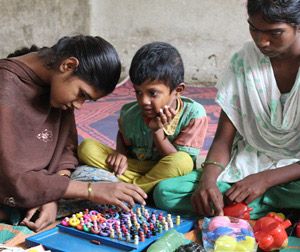
SACRED

SAMUHA – India
Social Action for Child Rehabilitation Emancipation and Development (SACRED) promotes community-based rehabilitation for persons living with disabilities in the rural areas of Kurnool and Anantapur districts in Andhra Pradesh. They currently operate across 397 villages.
Established in 1984, SACRED believes that persons with disabilities should lead dignified lives by availing equal opportunities and rights; accessing resources and services; and by combating discrimination and injustice in family, community and society.
SACRED has been working with us in the district of Kurnool since 2012 and was one of our first partners. Projects we have implemented together are: “Family Caregiving and Public Policy in India: Creating New Opportunities for Recognition and Support”; “Promoting the Recognition and Inclusion of Carers of the Disabled and Mentally Ill in India” and “Invisible to Visible: Documenting the Lives of Carers in India”.

LEADS

LEADS – Nepal
Established in 2009, LEADS Nepal seeks to fulfil the basic needs of poor and marginalized people. They place persons with mental illness at the heart of all they do, addressing both the illness and their poverty. They strongly believe that mental health is a right, not a privilege. Currently, LEADS areas of activities are Baglung and Myagdi, regions in Western Nepal.
By enabling people with mental illness or epilepsy to live and work successfully in their communities, they give hope to the thousands of people who find daily life challenging due to a lack of treatment and the stigma surrounding their condition.
LEADS Nepal have worked with us since 2014. Together we have completed the projects “Improving the Physical and Mental Health, Promoting Social Inclusion and Increasing the Household Income of 1,500 Carers of Mentally Ill Individuals in Nepal” and “Action for Carers: Transforming Lives, Policies and Practice for unpaid family carers in Nepal”. Together we are currently working on the project “Promoting Social and Economic Empowerment of Carers by Strengthening Women-Led Carers Associations”.
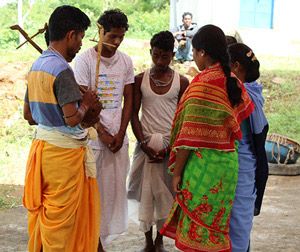
WORD, Odisha

WORD – Odisha, India
Women’s Organisation for Rural Development (WORD) was initiated by a group of women from Koraput district, Odisha, in 1991. A grassroots organisation, WORD’s purpose is to build a collective of women who address the issues of poverty and discrimination across Laxmipur Block in Koraput district.
WORD seeks to empower communities and to facilitate social, economic, political and cultural development of vulnerable sections of the society. Their target groups are rural and marginalised tribals and dalits of which the most vulnerable are women, children and marginal farmers.
Carers Worldwide became partners with WORD in 2017 and our joint projects include: “Breaking the Silence: Empowering and supporting people with mental illness and epilepsy and their carers in tribal regions of Odisha”; “Family Caregiving and Public Policy in India: Creating New Opportunities for Recognition and Support” and “A Voice for Carers: Achieving Recognition and Inclusion of Family Carers of the Disabled and Mentally Ill from Adivasi Communities of Odisha”.

SPREAD

SPREAD – India
Founded in September 1989, SPREAD works as a catalyst to build up the capacity of underprivileged and vulnerable groups through the process of participatory development. SPREAD connects the rural poor to government benefits to which they are entitled. This increases the standard of living of vulnerable groups and helps them towards living a life of dignity.
SPREAD works with tribal groups, scheduled caste groups, and other poor communities across six districts in the state of Odisha.
In 2017, Carers Worldwide began working with SPREAD on the project A Voice for Carers: Achieving Recognition and Inclusion of Family Carers of the Disabled and Mentally Ill from Adivasi Communities of Odisha.
Since then, we have also worked on “A new beginning in Koraput: Raising awareness and identifying people with mental illness and their carers in Boipariguda and Koraput Block” and “Family Caregiving and Public Policy in India: Creating New Opportunities for Recognition and Support”.
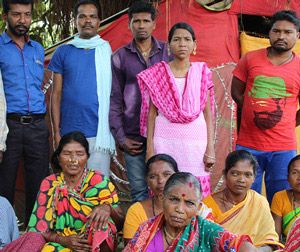
EKTA

EKTA – India
Ekta’s motto is ‘Unity is strength’. A registered non-profit organization, EKTA was formed in 1994 and currently works in Koraput, Rayagada, Khurda and Balangir districts of Odisha with plans to expand in to other districts in the state.
EKTA seeks to establish a just, equitable and sustainable society where the vulnerable can lead a healthy and dignified life without any discrimination. They work with vulnerable groups including tribals, persons belonging to scheduled castes, women, children, and people with disabilities.
EKTA has been a partner of Carers Worldwide since 2017 and we are working on the following projects together: A new beginning in Koraput: “Raising awareness and identifying people with mental illness and their carers in Boipariguda and Koraput Block”; “Family Caregiving and Public Policy in India: Creating New Opportunities for Recognition and Support” and “A Voice for Carers: Achieving Recognition and Inclusion of Family Carers of the Disabled and Mentally Ill from Adivasi Communities of Odisha”.
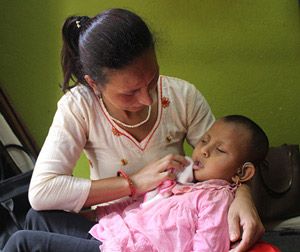
SGCP

SGCP – Nepal
Self-help Group for Cerebral Palsy, (SGCP) Nepal, is a non-governmental and non-profit organization fully committed to helping children and adults with cerebral palsy. They provide emotional and practical support to parents of children with cerebral palsy.
Established in 1987, SGCP brings together medical professionals, university teachers, parents of disabled children and social workers who all have a common goal to improve the quality of life of persons living with cerebral palsy.
As the only NGO of its kind in Nepal, SGCP assists of hundreds of children, adults and parents affected by cerebral palsy across many districts of the country. The organisation operates a Rehabilitation Centre in Lalitpur, Kathmandu Valley, which opened in 2005.
Our work with SGCP commenced in 2016 with the “Care for Carers: Empowering Parents of Disabled Children in Nepal” project.